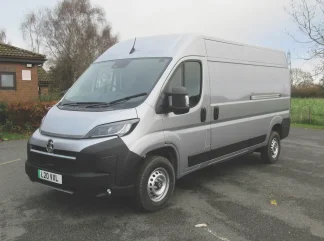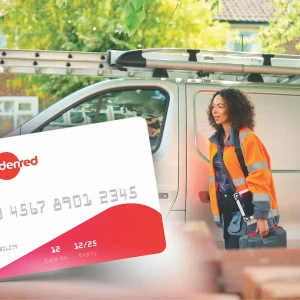
When is a Citroen Relay not a Relay? When it’s a Peugeot, a Fiat, a Vauxhall, a Toyota or even an Iveco. In theory, these vans are almost identical, but brand perception can, often unfairly, play a major part in their value on the used market. This sentiment can remain for many years. Even now, Skoda jokes from the 1970s are still told by some.
This unfairness is highlighted by Dionne Hanlon, senior editor, commercial vehicles at valuation data provider Cap HPI. “Yes, the badge does affect the value of a vehicle, although, from a purely logical standpoint, it shouldn’t. People have long memories, and when certain vehicles gain a reputation for not performing well, that perception tends to stick.” Highlighting that trade understanding isn’t the same as that of the customer, Hanlon continued: “The trade is savvy enough to recognise that many vehicles share the same underlying components, but second or third users might not be as informed, unless they see the models side by side. This is part of the challenge.”
Other factors such as the strength of supply can also affect values over a short term, as Hanlon explains. “When it comes to performance, we often observe fluctuations where one vehicle may outperform its badge engineered counterparts one month, only to switch the following month. This variability is not due to the badge itself but rather the number of vehicles available in the market at any given time.”
Although broadly agreeing with the Cap HPI viewpoint, Andy Picton, specialist residual value analyst at Glass’s, notes other factors at play. “Although on a shared platform, pricing can vary wildly between badges, making the more expensive manufacturer less attractive in both new and used markets. In addition, those with the ‘right’ badge on the bonnet and that have a better dealer network or longer manufacturer warranty, will often be seen as the better choice on the open market.” But Picton also sees the potential for over-supply to define valuations. “Too much of anything causes an imbalance and when you are looking at a cross-badged model, volumes can sometimes be doubled, trebled or quadrupled, especially when there has been a big de-fleet.”
Changing any negative brand perception is a challenge for manufacturers, but activity when promoting new van sales can have a spin-off effect on the used market, as Richard James, used van sales manager at Pentagon Group, points out. “Some brands spend far more on marketing and attractive consumer offers; low-rate finance, which gets their version of a particular van in front of more sets of eyes. Confidence in a purchase can often come from a stronger warranty and servicing package, as well as having a large and long-standing dealer network to keep downtime to a minimum.” James also suggests that familiarity with a brand when seen by a used van buyer may have a positive effect. “Some manufacturers also offer larger fleet discounts, and while this can lead to a surplus of used stock further down the line, often the best advert for a van is when the plumber on the way to a job sees a particular badge on a large and well-respected fleet, for example.”
But are customers becoming more educated and aware these vans are closely related, and that the badge on the front is mostly irrelevant? Alex Wright, managing director of Shoreham Vehicle Auctions, feels that the buyers are becoming more pragmatic and less swayed by sentiment, particularly in the workhorse segment. “In the large diesel panel van sector, the focus from operators buying a new van and SMEs buying a used van is now identical – will the vehicle be capable of managing my workload, are its servicing costs reasonable and will it be reliable? That means the traditional van brand loyalties have now gone out of the window and it’s a level playing field in the market based on running costs and reliability.”
Also suggesting the impact of a brand could be waning is Geoff Flood, head of LCV at Motor Auction Group. “Currently the used market is not very sensitive to different manufacturers – with a great deal of stock duplication in the market, it’s about whether the van is in good condition, does it have a full service history and is it available in a good colour and with a strong specification? Those vans stand out in the market and make strong money, and they can have any number of different manufacturer badges on the bonnet.”
This alignment is a view echoed by Sam Magee, LCV auctioneer at G3 Remarketing. “I think as we see more shared platforms, we will see closer values between the marques,” Magee said.
The recently launched Volkswagen Transporter is the result of a platform sharing agreement with Ford Pro, the van being fundamentally a Transit Custom with a different badge. With the Custom being the UK’s best-selling van, and the Transporter having a strong and loyal customer base, our panel were asked how they expected the vans to perform on the used market in the future. Cap HPI’s Hanlon sees the traditional factors being mostly unchanged.
“The prospects for the new Transporter versus the Transit Custom will likely differ. Factors influencing this include brand loyalty, historical perceptions and the current supply of vehicles in the market. If one model has a stronger reputation or if there’s an oversupply of the other, it will impact resale values,” she said.
Glass’s Picton sees varying attitudes being adopted by operators. “It’s difficult to say at this stage how the market will view the model long term. There will be those die-hard Transporter operators who loved the history and heritage of the VW brand and may feel the new partnership is not right for them or their business, deciding to run their current fleet for longer. There will be others who realise that this partnership is a necessity, allowing VW access to the latest safety and driving assistance tools and PHEV and BEV powertrains.”
Picton cites the effect the enhanced aftersales benefits being offered by Volkswagen may have.
“I think Volkswagen will win new business on the back of their longer five-year warranty, five-year roadside assistance, five services and three MOTs package on new Transporters.
“Longer term, I think demand for Transporters will hold up, partly because there will be smaller volumes in the open market.”
G3 Remarketing’s Magee sees a more belt and braces attitude in prospect.
“A Transporter will smash the [Ford Transit] Custom Limited but will need expensive options added at new over the standard Ford specification. But I’m sure we will see the old approach of ‘I’m a Ford guy’ or ‘dubs all day’.”
The fact the vans share the same diesel engine, a unit that suffers from a reputation of having a poorly designed timing belt, isn’t lost on MAG’s Geoff Flood.
“Buyers are still wary about any used models that are fitted with the wet cambelt, but there is no doubt the used market considers the Custom the best-looking van on the market.”
Flood concurs with Magee about brand loyalty. “It may be as simple as ‘I want to buy a used Ford’ or ‘I want to buy a used VW’ and that will determine their popularity at auction.”
Supported by:






